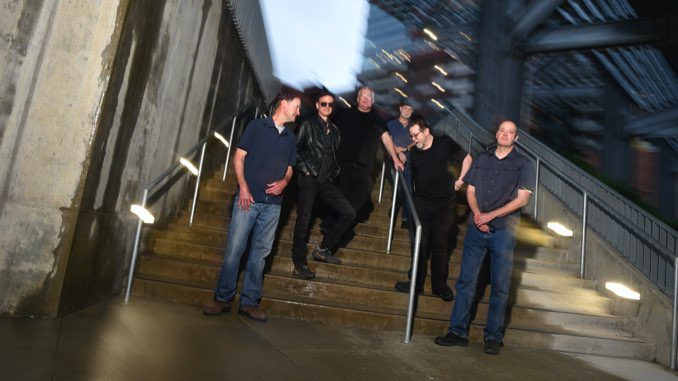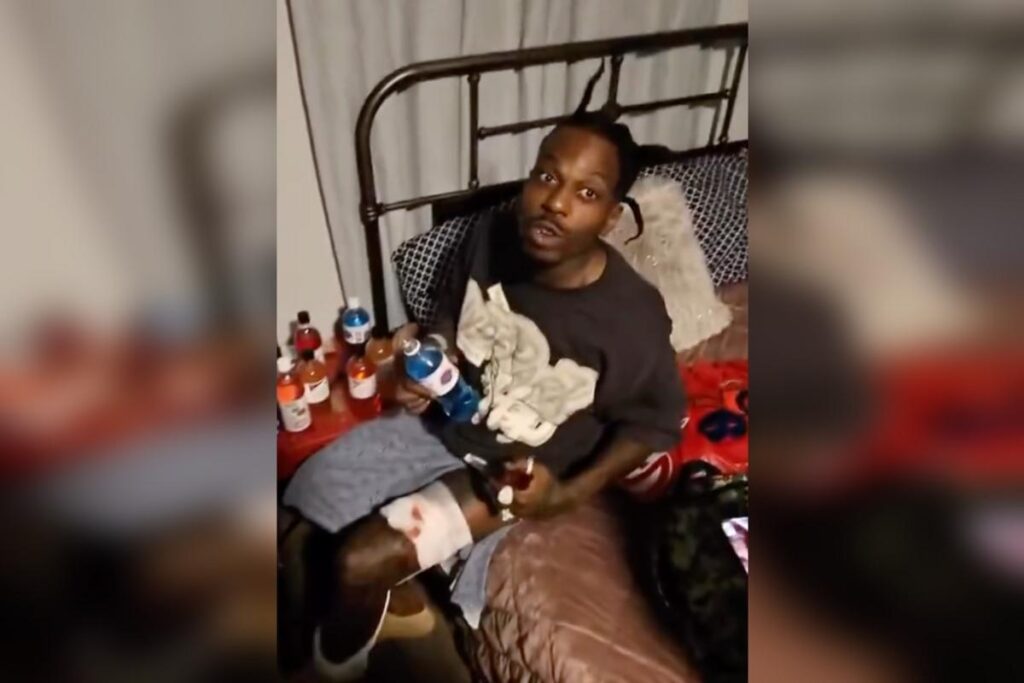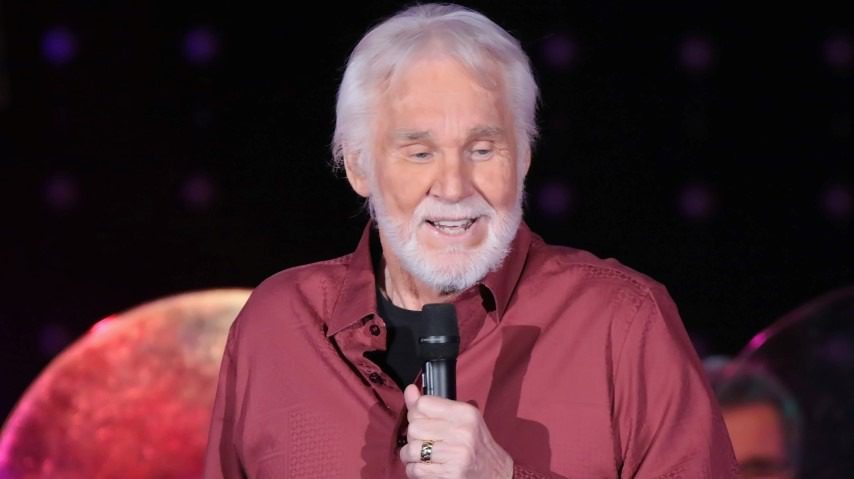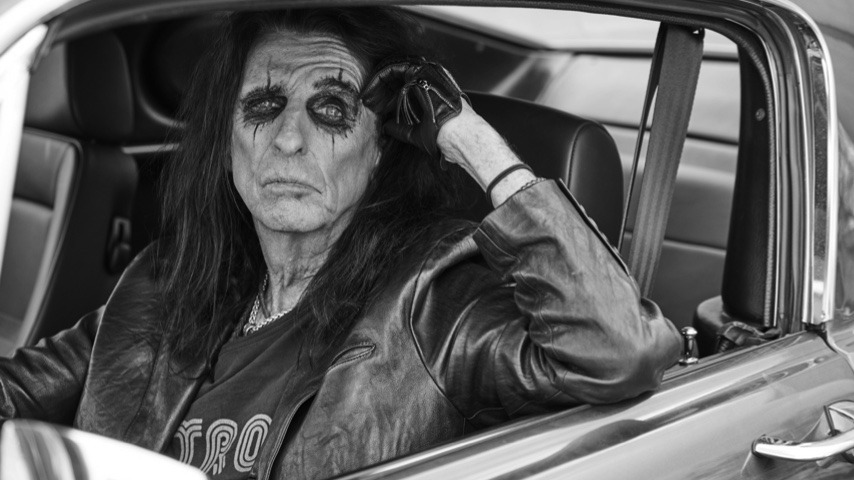“Don’t quit your day job” is the cautionary caveat that many parents, teachers and prescient talent agents relay to young performers early in their careers. And some, like Raleigh, North Carolina guitarist Mike Connell, not only take such wisdom to heart, but they practically set their clocks by it, as well. Or so the full-time worker’s compensation lawyer happily reported last week, phoning after a busy workday at 6:30 p.m., loosening his tie and untucking his dress shirt. Given Covid-19’s insidious effect on employment, he’s had a heavy caseload all through lockdown, he says, but the 62-year-old still found time to moonlight—with his fine-arts-schooled kid brother Dave, 60, on bass—as The Connells, a chiming R.E.M.-era outfit that formed in 1984, issued eight brilliant, but unheralded albums (most for hip indie imprint TVT), and then virtually disappeared after 2001. The band just returned with their ninth set, Steadman’s Wake, their first disc in just short of two MIA decades, and a nice, politically skewed reminder of all their estimable songwriting charms.
Day jobs, which usually come with attendant health insurance benefits, are a quiet necessity, even a prime directive for many struggling rockers. Connell had graduated from law school before his group formed at Chapel Hill’s University of North Carolina, but he didn’t put that sheepskin to use right away. “I’ve been with my law firm for about 18 years now,” he elaborates. “And that roughly coincides with the birth of my oldest child, and he’s turning 18 in a few weeks. And when he arrived, I didn’t have a job to speak of, so I didn’t have the luxury any longer of wondering, ‘Now what is it, exactly, that I want to do with my life?’ I had to get serious about putting food on the table.” This allowed The Connells to simmer on the back burner for the ensuing years, and occasionally turn up the heat for various reunion concerts.
Understandably, Connell—who penned all of the social-commentary-peppered new originals himself (such as the charging jangler “Universal Glue,” the cynical feel-good anthem “Really Great,” a propulsive pounder called “Helium” and the vintage-Searchers-sunny “Gladiator Heart”)—felt no pressure to cross the finish line with a completed new album. Steadman’s Wake kicked off five years ago and came together gradually, comfortably, sans studio-time stopwatch clicking off the expensive minutes, hours, days in the background.
The laid-back process kept the music pure and innocent. And with original frontman Doug MacMillan sounding better than ever, and Mike himself taking over on some songs’ vocals, The Connells are sounding wonderfully displaced in time, like they never really went away at all. In between legal briefs, Connell caught us up on what spurred this surprising comeback, as his kids prepare to leave the house and empty nest syndrome sets in.
Paste: Why weren’t The Connells much bigger in that whole Southern college-radio alterna-movement back in the ’80s, spearheaded by R.E.M., Let’s Active and The Swimming Pool Q’s?
Mike Connell: Well, we just weren’t as good! Well, not exactly that, but I do think that we were more fortunate than so many bands that were so much better than us, so there’s no bitterness now—I think we all feel pretty grateful for what we were able to do, because we were in the shadow of some pretty giant bands. But we just never worked our way out of that, and it was part work ethic, part just raw talent, and maybe some of the old story that it’s just the way things go. Or don’t go. And the band got started in my third year of law school, just like most bands started back then—with a family member wrapping up their schooling. And a couple of the guys were not in school, but the majority were. And then a couple of the guys did bail on college, but I went ahead and finished my law degree and took the bar, and then informed my dad that I was gonna see what would happen with music.
Paste: And that’s a tough conversation, right? How did dad take it?
Connell: He was a little dismayed. Especially when my first job out of law school was working at Schoolkids Records here in Raleigh. That was my first big day job, and it was pretty attention-grabbing for some people that I’d gone to law school with, who would walk into the record store and see one of their classmates sitting behind the register. So it was a little embarrassing for me, too, I guess. But my dad understood. And the idea at that point was, we’ll give the band a year or two tops, and by that point I will have come to my senses and I’ll start trying to practice law. And only one or two years out of law school, it won’t be any problem. So he was much better with it than I had anticipated. But we actually did well enough that we could justify trying to make a living at it. We were sharing apartments, and we weren’t living lavishly, but we found that we could make a go of it, although we had to stay busy in order to pay the bills. But then things got even better, so all along there was never any thinking other than, “We are fortunate that we can do this, and that there are some people who are interested in, and like what we’re doing. And what more, really, can you ask for?” And that’s the mentality that kept us going.
Paste: Looking back on it now, what would you call your musical career? I can’t quite call mine “rock journalism,” because I never got rich doing it—it was just something I always loved to pursue.
Connell: I’d call it chasing the dream. Not wanting to look back in my late 60s and think, “I really do wish I’d seen what might have happened if I’d pursued that.” So I think that I’m glad for having given it a shot, and glad that I was able to do it for a while. And again, the fact that there are some people who see some merit to what we did, and really liked some of what we did? What more can you really ask for?
Paste: How did you gauge when to reform for various recent reunion gigs?
Connell: We would have that conversation whenever a promoter would extend an offer. And it’s not like offers were coming in every week or every few weeks, but every few months, we’d get an offer to play a venue that maybe we’d played a long time ago, so then we would have the conversation of, was it worth our while to do this? With the time involved and the effort involved, what would we get from it at the end of the day? So on those occasions when we did the math and figured it was doable, and the logistics would work with everyone’s schedules, then we would generally say yes and do it. And do it to mixed effect—some shows went really well, and some, uhh, less than really well. And any damage was self-imposed, with someone in the band not moderating, say, their alcohol intake on the given day. So there were some shows that were pretty unforgettable. But for all the wrong reasons.
Paste: Do you remember the moment you decided to hang up the cleats?
Connell: I do have a pretty good recollection of that. The band’s manager and I were called up to New York to meet with Steve Gottlieb, who was the president of our record company, TVT Records. And we’d been with him since ’87, so this would have been ’98, ’99, maybe? But we’d made six records for them, and we had a lot of the songs ready for record number seven, thinking we’d get right back in the studio and make it. And we were going to try to get back to a formula that had worked better for us, versus purposely trying to distance ourselves from what we had been doing all along, just because we’d gotten tired of the criticism—like, “Oh, they’re a one-trick pony, and they just do the same thing, and regurgitate the same sort of stuff, over and over.” So we very consciously, purposely tried to go in a slightly different direction, especially with our Weird Food and Devastation record [’96]. But the timing was questionable, because “That Thing”—whatever it was that we had done pretty much from Day One—had finally garnered some commercial success in Europe. So anyway, Steve Gottlieb gets the manager and myself to New York, and he lets us know that they’re dropping us. And my response was, “Well, I can see where you’re coming from, because it’s not like our pendulum is swinging in the right direction.” So it was strictly a business decision, and I don’t think he harbored any resentment or especially disliked us or anything like that. So it made perfect sense. So we got dropped, and it coincided with a time when families were starting to come along and that sort of deal. I mean, it wasn’t a fast-moving train at that point. And you know, it’s really not fun when you go into a town where—only a few years before—you were drawing 1,000 to 2,000 people, and then only 250 to 300 people show up. That’s just not fun. So it was easy to just walk away from it all at that point.
Paste: It’s interesting that your greatest-hits collection features a dated cassette on the cover, retro technology that’s now suddenly in vogue again.
Connell: And it’s kind of embarrassing, too, because we had only one song that did pretty well in Europe, “’74-’75”—we don’t have hits. We don’t have any real hits, so calling it that is a misnomer. But that collection has been out for a couple of years now.
Paste: How weird was it suddenly getting huge in Scandinavia?
Connell: Well, Germany is where things started. But yeah, in Sweden and in Norway we did really well, and actually throughout a fair bit of Europe, Spain excluded. We just didn’t connect in Spain, really. But we did okay in Britain. And the song that was doing so well, “’74-’75,” got to #14 in the British charts, and if it had moved up instead of falling back, we were going to get on Top of the Pops. But I think Oasis had six songs in the top 10 at that point, but we did manage to get to #14, which was just an astonishing thing to me, being a huge anglophile and totally growing up on British bands.
Paste: How was it touching down overseas for your first big post-hit tour?
Connell: Surreal, I guess, is the word that I would use. Just going to a part of the world where we had never been before, and playing for crowds that were so different from the crowds that we were accustomed to, primarily in the Southern United States. So it was all a real kick in the pants for us, and just a blast. And in the year 1995, we made something like eight or nine trips to Europe. And, as a consequence, we got back to the U.S, having really not played here for a year, and we never could get the same traction back. We really lost the momentum. But there was no question about things like that back then—if things were going well in a certain country, a tour would be built around it wherever your song happened to be doing well, so it could just kind of slowly spread. Then we’d get back home from Germany and hear, “Well, it’s starting to take off in Sweden and Norway now!” So there we would go. But it was an interesting experience, that’s for sure.
Paste: Did Steadman’s Wake coalesce during the pandemic? Or before?
Connell: No, we started this album in the summer of 2016 and did the basic tracks for about five songs with Mitch Easter at his studio. And we’d recorded our Boylan Heights album with Mitch at his famous Drive-In Studio back in the day [in ’87], so it was really awesome getting back together with him. So we started it in 2016, and then it proceeded in fits and starts, and we’d sometimes abandon it for a while. And the pandemic did slow things down for a bit, but it’s finally here. Like the opening track on the record, “Really Great,” for instance. I just sat down with an acoustic guitar, and as is usually the case, it’s pretty typical that I would get a song and then abandon it. And talking about cassettes, I would often come back and find a tape with this germ of an idea, or a fragment. So that song started to suggest itself, initially, probably 10 years ago, and it just took awhile for me to finally say, “Okay, now I’ve got to pull this thing together, lyrics included, and make it a song.” So now the verses describe anything other than what’s “Really Great,” but then there’s the chorus saying otherwise. So it’s not especially clever, but it just is what it is—a throwaway two-and-a-half-minute pop song.
Paste: Is an entire Connells reunion tour possible any time soon?
Connell: Well, I’m not telling you anything that you probably don’t already know about the music business. But touring, with all its amazing moments and the incredible people that you meet that you would not otherwise have met, and all the great experiences? The vast majority of it is just that grind. Your time is not your own, there’s no privacy to speak of, and you’re uprooted and feel just … just disconnected for the majority of however many weeks you’re going out for. So there are things that I do miss about touring. But there is a lot that I do not miss. But if circumstances warrant it, I don’t think anyone would be averse to that—I think we would be receptive to trying to get out and play more, absolutely. Like, last weekend, we played Athens, Georgia, and Atlanta, and it was good—it had been 20 years since we last played Athens, or thereabouts. So if there’s any interest from promoters who are willing to take a chance and have us back out, we’ll take it into consideration.
Paste: What did you learn from lockdown, all told?
Connell: Well, first and foremost, it just put things in proper perspective. Stuff that used to concern me that I thought was vital and important? I realized that it wasn’t at all, or at least not to the extent that I thought. For the rest of the world, it was so scary initially. But then you get inured to some of it, and it starts to be more commonplace. But it was good, because it slowed things down, and I spent more time with people that I really wanted to spend time with. And of course, music factored into that, as well. And it became more about just getting alone in a room with an acoustic guitar and trying to see if something would occur. Even just the idea or a fragment of something that could later become a full song. And watching an Echo and the Bunnymen concert, live at Royal Albert Hall, was incredible, too. The footage from that show just slays me.




